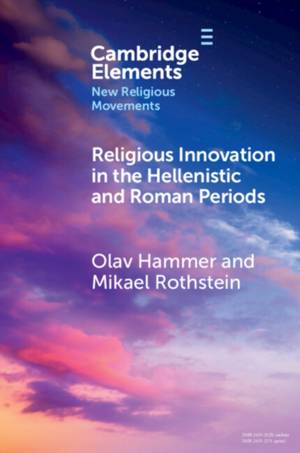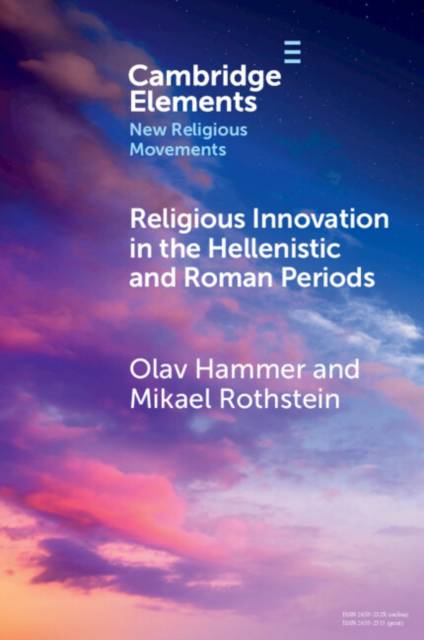
Door een staking bij bpost kan je online bestelling op dit moment iets langer onderweg zijn dan voorzien. Dringend iets nodig? Onze winkels ontvangen jou met open armen!
- Afhalen na 1 uur in een winkel met voorraad
- Gratis thuislevering in België vanaf € 30
- Ruim aanbod met 7 miljoen producten
Door een staking bij bpost kan je online bestelling op dit moment iets langer onderweg zijn dan voorzien. Dringend iets nodig? Onze winkels ontvangen jou met open armen!
- Afhalen na 1 uur in een winkel met voorraad
- Gratis thuislevering in België vanaf € 30
- Ruim aanbod met 7 miljoen producten
Zoeken
€ 31,95
+ 63 punten
Omschrijving
The scholarly study of new religious movements focuses on the contemporary period, but religious innovation is nothing new. This Element explores a historical epoch characterized by a multitude of emergent religious concepts and practices - the Hellenistic and Roman periods. A precondition for the intense degree of religious innovation during this time was a high level of cultural exchange. Religious elements crossed porous cultural borders and were adapted to suit new purposes. The resulting amalgams were presented in a vast corpus of texts, largely produced by a literate elite. Charismatic leaders played a particularly important role in creating new religious options and were described in genres that were infused with ideological agendas. Novel religious developments were accepted by the Roman authorities unless suspected of undermining the social order. The rise of one of the many new religions of the period, Christianity, ultimately changed the religious landscape in profound ways.
Specificaties
Betrokkenen
- Auteur(s):
- Uitgeverij:
Inhoud
- Aantal bladzijden:
- 75
- Taal:
- Engels
- Reeks:
Eigenschappen
- Productcode (EAN):
- 9781009015257
- Verschijningsdatum:
- 10/08/2023
- Uitvoering:
- Paperback
- Formaat:
- Trade paperback (VS)
- Afmetingen:
- 152 mm x 229 mm
- Gewicht:
- 117 g

Alleen bij Standaard Boekhandel
+ 63 punten op je klantenkaart van Standaard Boekhandel
Beoordelingen
We publiceren alleen reviews die voldoen aan de voorwaarden voor reviews. Bekijk onze voorwaarden voor reviews.











